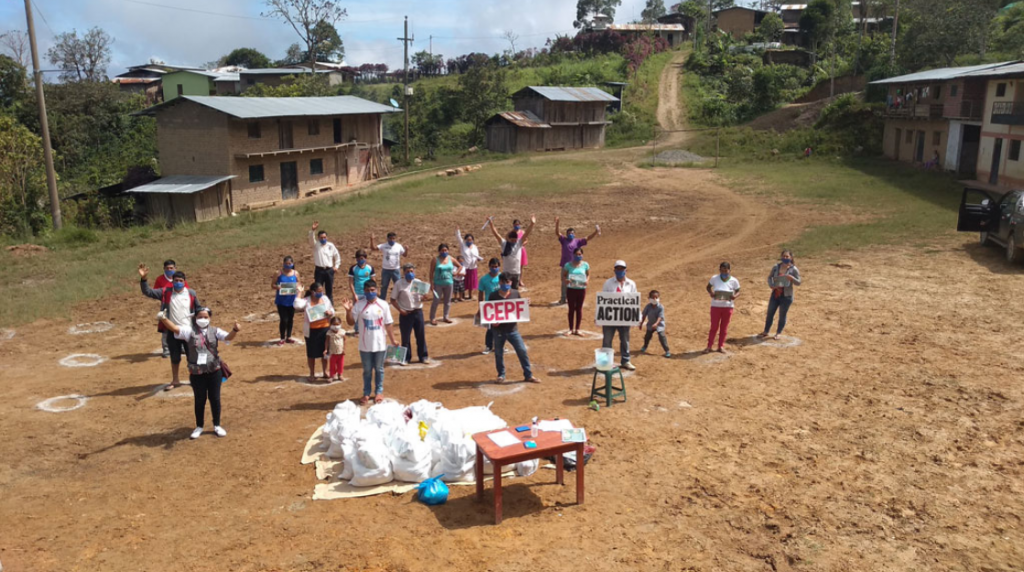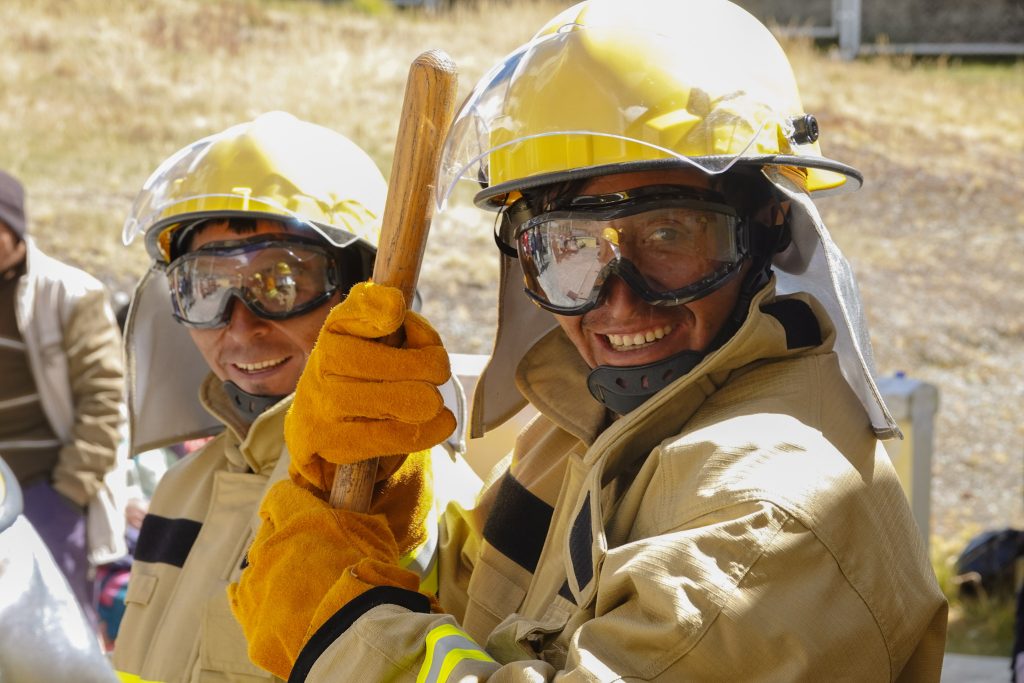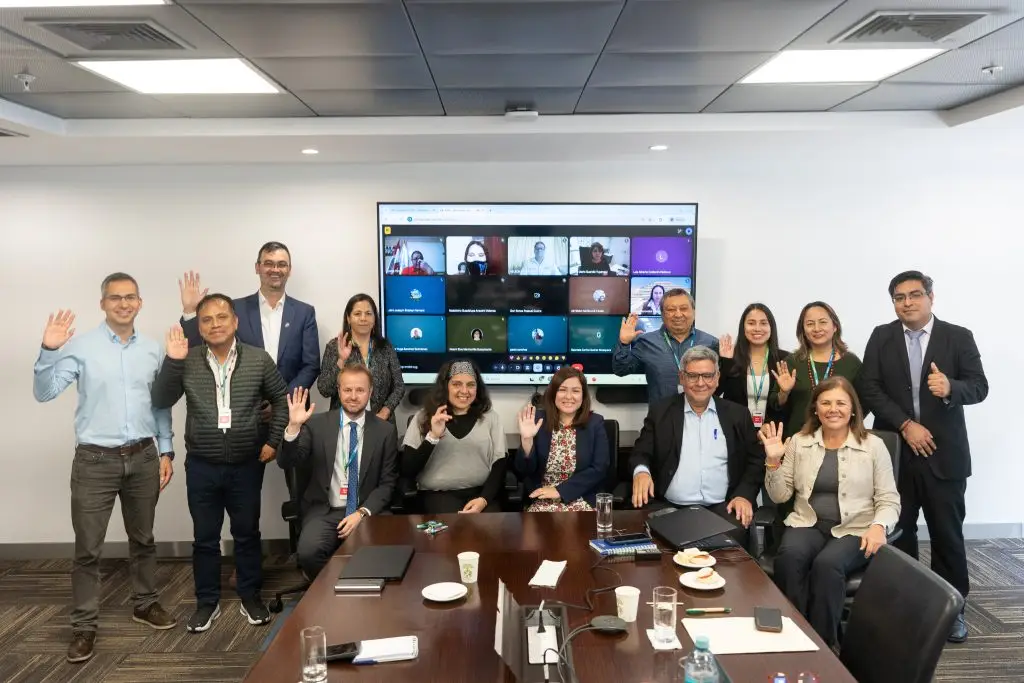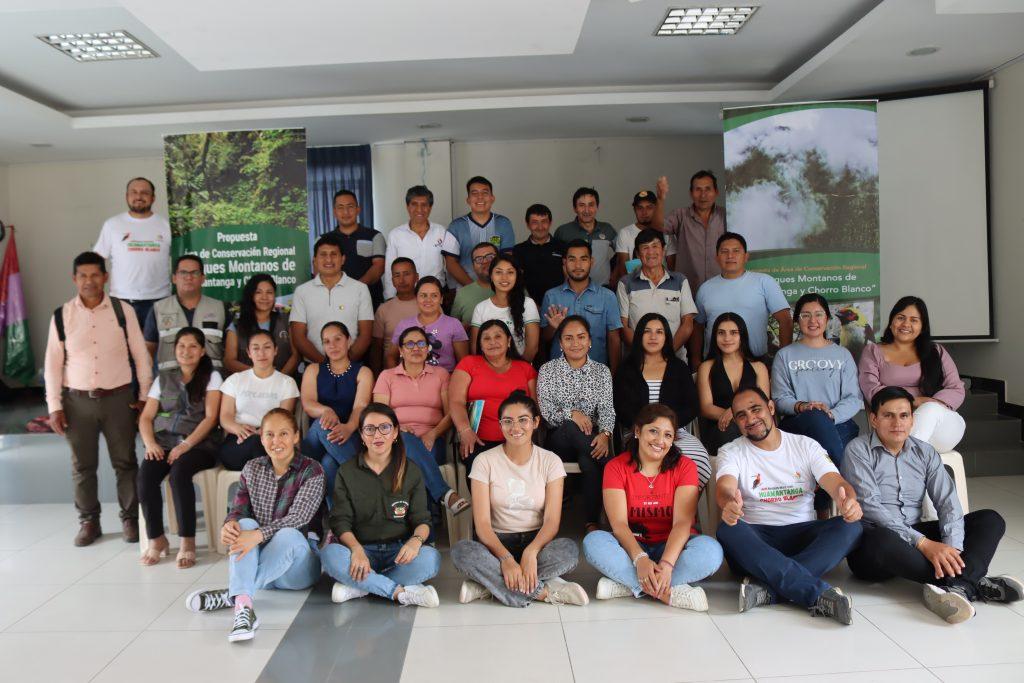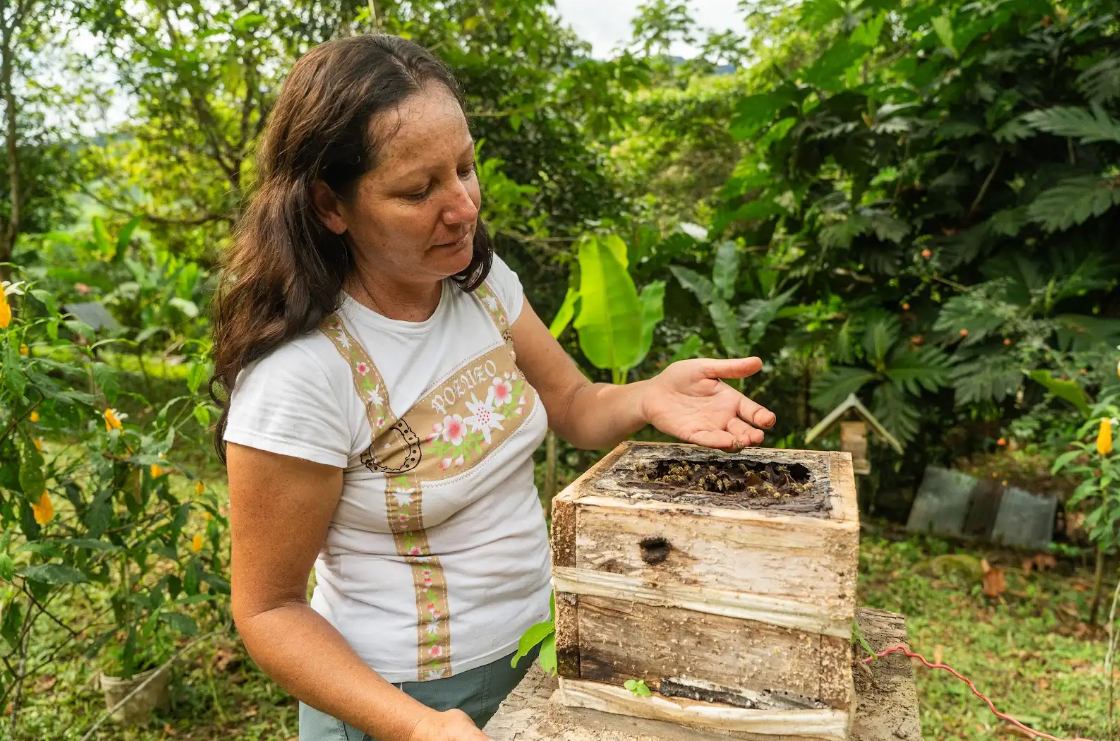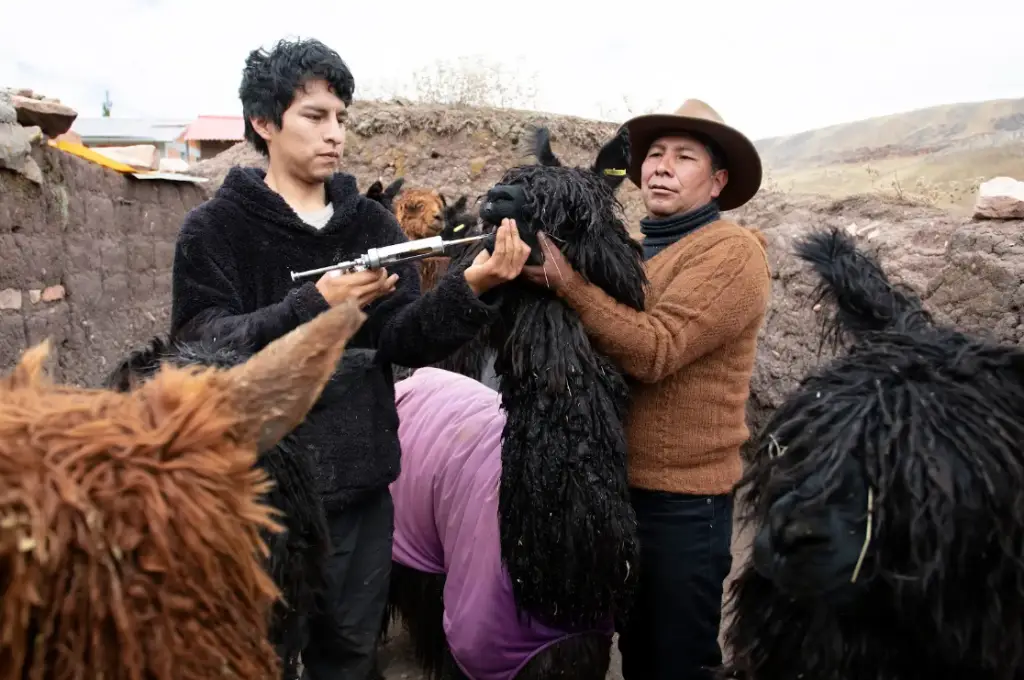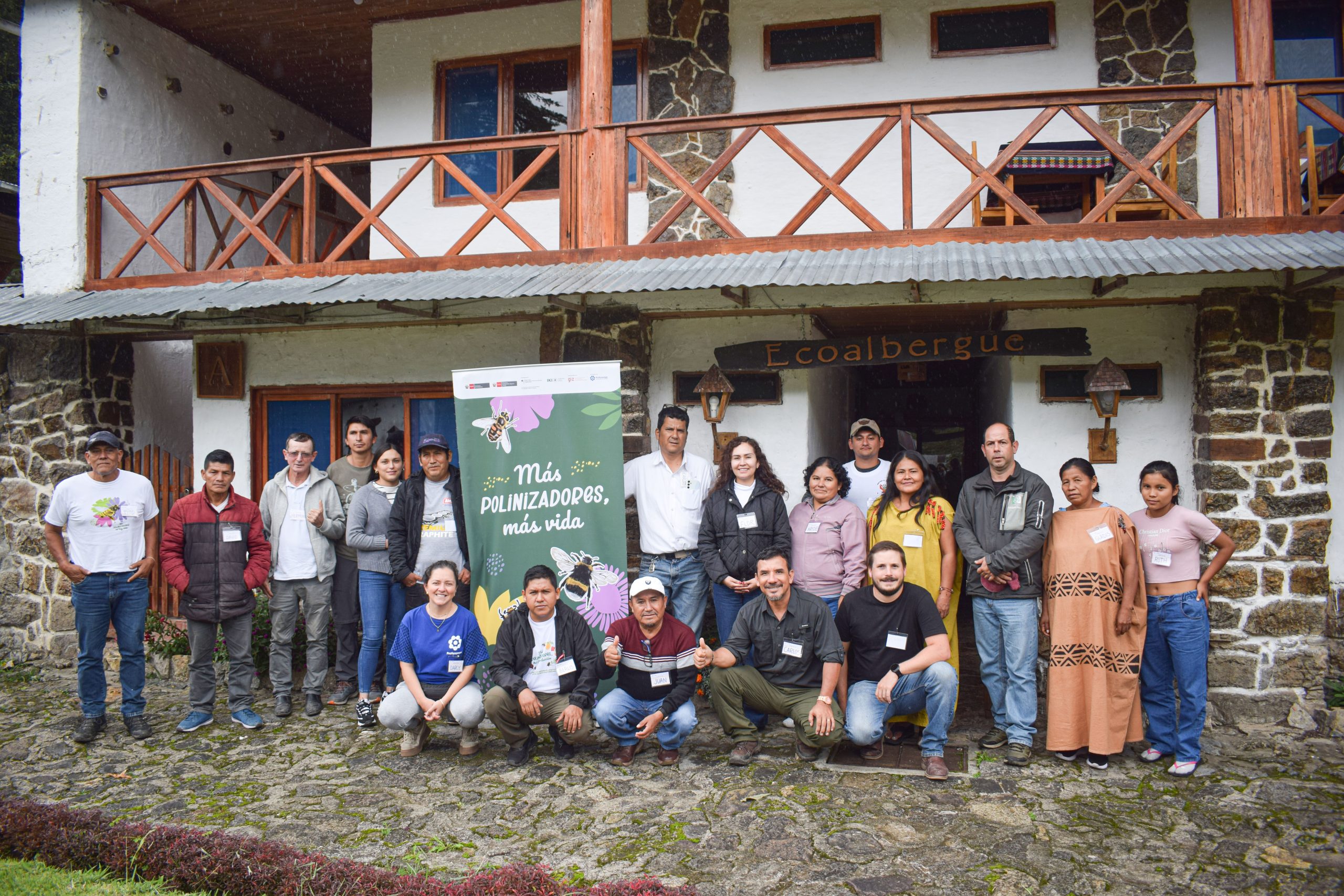CEPF through Practical Action donates food, cleaning kit and vegetable seeds to the Buenos Aires farmhouse . Photo: Practical Action
The CEPF-funded Practical Action project in northern Peru was in its final stages as the COVID-19 pandemic swept across the world. Suddenly, the isolated community of San José de Lourdes, where the organization was working to protect endangered bird species, was having difficulty acquiring not only cleaning products and disinfectants, but also food. At this point, Practical Action quickly changed gears and, through an amendment to its grant, was able to purchase and deliver the necessary commodities. Seeds were also provided, along with instructions, to help the community grow their own food.
“It has not been possible to move forward as planned because much of what our beneficiaries do involves working in the fields and visiting communities,” said Michele Zador, CEPF’s director of grants for the Tropical Andes region. As a result, CEPF and the Tropical Andes Regional Implementation Team (Fondo Patrimonio Natural in Colombia and Bolivia, Fundación Futuro Latinoamericano in Ecuador, and Profonanpe in Peru) have worked with partners to make the necessary adjustments.
Meanwhile, indigenous communities in the Chayu Nain Communal Reserve in northern Peru have requested fishing equipment for their subsistence. «These communities have basically been self-isolated, so they have to become much more self-sufficient,» said Zador.
Delivery of implements to the Chayu Nain Communal Reserve. Photo: SERNANP (RCCN)
& nbsp;
Also, when partners make plans to enter the field, they must follow protocols to ensure they are not putting themselves or anyone else at risk. CEPF is helping grantees develop and implement COVID-19 mitigation policies, including the purchase of basic supplies and equipment. In cases where grantee staff are required to travel to rural communities, CEPF is covering COVID-19 testing prior to their visits.
CEPF is also covering costs related to disseminating COVID-19 prevention strategies in communities, including producing radio programs in local indigenous languages, printing flyers, and public health training workshops.
Beyond immediate needs, CEPF beneficiaries have more long-term challenges to consider. The CODESPA Foundation is working to promote ecotourism in the Polylepis de Taquesi Forest, located near the Bolivian capital, La Paz. They anticipate an increase in domestic tourism as soon as the quarantine in the city is lifted.
“COVID-19 is a new threat to biodiversity in the Tropical Andes. We know that when economic opportunities shrink, people will have no choice but to exploit their natural resources, ”said Zador. «We must, therefore, participate in the search for solutions»


